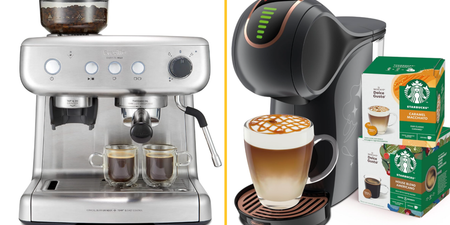One of the first internet phrases was born from laughter: lol.
Good old lol. Beautiful, pure, wholesome lol. To lol was to laugh out loud, and how we didn’t. Hunched over our ugly tower PCs, checking MSN Messenger, we tipped and we tapped at our keyboards, chatting away to our friends, lolling here, lolling there, but never actually, literally lolling.
To lol was not enough, though. Soon we would rofl, lmao, pmsl. Haha, hahaha, hahahahaha – the lexicon of laughter was expanding to meet our pointless needs. But though they all convey laughter, they don’t all mean the same thing.
There are many subtle differences between each form of laughter, and in a medium where so much can be lost in translation, it’s important that you recognise the time and place to use each. Let’s have a look at the different ways to laugh through text and explore the etiquette behind each of them.
haha
The new norm in establishing that yes, what you just said is funny. If you want a solid, no-nonsense way to convey a sense of laughter, you drop a ‘haha’ and walk away. You know what it means, they know what it means. We’re done here. Get out of my DMs.
hahaha
There’s just one extra ‘ha’ tacked on the end here, but it makes all the difference.
A ‘haha’ lets the other party know that, if you were having this conversation in real life, you would have made the effort to laugh, even though what they said wasn’t that funny. It’s a politeness, a courtesy.
A ‘hahaha’ is used if what the other party said actually made you laugh, and because you’re not a sociopath, you want to let them know about it. Genuine laughter. Actual mirth. A reason to live. Imagine.
hahahahahahahahaha
Nine times out of 10, anything more than three ‘ha’s is disingenuous. It’s overcompensating. Nothing is ‘hahahahahahahaha’ funny, not even a dog wearing sunglasses and a Hawaiian shirt with a corncob pipe in its mouth. Close, though.
A ‘hahahahahaha’ is instinctive, a default response, an Out of Office reply. There’s no care or thought behind its deployment. You can almost see their eyes glazing over as their left and right thumbs hammer alternately at the screen.
“Looks like we’re gonna have to find another bishop that needs bashing then!”
“hahahahahahaha”
“Haha, yeah. Anyway, thanks for listening. It’s been a tricky few weeks, but this is helping, so I really appreciate it :)”
“hahahahahahaha”
“Huh?”
“hahahahahahaha”
“…”
“hahahahahahaha”
Haha.
Wow. I’m sorry, sir, but I’m going to ask you to pull over the Banter Bus and show me your Fun License. You are simply having too much of a good time and it’s frightening the locals. Are you registered to carry this thing? Stop smiling like that, man, you’ll break your face.
Formal much? Granted, the iPhone has more or less eliminated text-speak (and thus the horrifically Daily Mail phrase ‘text-speak’), but don’t go out of your way to apply the rules of grammar to laughter. We’re not at school anymore and Miss Williams wasn’t going to nosh you off for having good punctuation then, now, or for any other reason.
What’s that full stop all about? “And lo, the prophet did say: Here, the fun beginneth, and here, it doth end.” What kind of person puts a limit on laughter? Let it ring out, through the streets and valleys, out into eternity. Cut loose. Live a little. You’re depressing me. Fascist.
lol
One upon a time, ‘lol’ was the standard unit of laughter. Back in the ’00s internet economy, one lol roughly equalled one laugh. “No, Mum. It doesn’t mean ‘lots of love’,” you’d exasperatedly tell your mother, wearily turning your head back to your computer.
“Mum thought lol means lots of love, LOL!” you’d then tell your crush, •?((¯°·._.• JeNnY •._.·°¯))؟• , who shortly logged off because •?((¯°·._.• JeNnY •._.·°¯))؟• was copping off with +—Mark—+ [G00N3R T1L 1 D1E] [1337] and wasn’t sure who the weirdo mummy’s boy she was just talking to actually was.
These days, ‘lol’ is used more like punctuation. It’s useful for bringing levity to a sentence that otherwise might sound too heavy, such as “I’m not sure that’s a good idea lol” or “Simon cheated on you lol” or “I’m sorry I killed your dog lol”.
It can also be used as a disparaging remark when someone says something so stupid that it doesn’t deserve a response. If used correctly, a ‘lol’ can be even more devastating than a Facebook Like, or ‘Seen ✓✓’. Drop a nuclear ‘lol’ on their ass and they’ll never speak again.
lolololololol
You could imagine a jester running away with the king’s favourite meat pie, chirping “lololololololol!” as he scurried from the royal court. As such, it is only ever used in jest, to humorously make out that something is funnier than it actually is.
In other words, it’s shorthand for “I know that was a shit joke, I’m just letting you know that I know. I am actually funny, that was just a deliberately bad joke. You see? I am funny. Really. Please. Please laugh at me. Please.”
lmao
A subtle and multifaceted laugh, ‘lmao’ can mean many things, often at once.
It can be an exclamation mark; it can mean ‘Are you serious right now?’; it can mean ‘Look at me! Look at meeee! I’m so wacky!’; it can mean ‘Oh, behave’; and if you whack it up into all-caps, it can make for a light-yet-wholehearted ‘HOLY SHIT’.
It’s an acknowledgement of ridiculousness, whether of one’s own or someone else’s. It’s an outburst, a kind of ‘bluhh!’ noise, as opposed to the controlled statement of amusement that is ‘haha’.
Maybe the most intricate of all the laughs. They’ll write books on ‘lmao’. Scholars will talk of ‘lmao’ until the sands of time blow into our eyes and the sun extinguishes itself.
rofl
Sadly, ‘rofl’ is no more. Though the prospect of rolling on the floor laughing is technically more likely than actually laughing one’s ass off, the Darwinian law of language means that ‘rofl’ is as good as dead. No one ‘rofl’s anymore and no more shall. Ask yourself: when was it last that you did ‘rofl’?
It’s too harsh and unpleasant a word to survive, too guttural and rough. A ‘rofl’ conjures images of a 40+ year smoker hacking up a lung after watching a granny fall into a pond on You’ve Been Framed.
“ROFL…. ROFL…” they bark into their hand, sitting back in their chair with a tar-blackened wheeze. Look out! There’s a dog in a Hawaiian shirt! “ROFL… ROFL…”
pmsl
The trouble with ‘pmsl’ is that it can’t be easily said out-loud.
Le-mao and roh-ful both work as vocalised words, but how are you supposed to say ‘pmsl’? Puh-muh-sull? Pimm-sill? It’s inelegant, in both phrasing and meaning. No one likes pissing themselves, unless they’re in latex and being paid £100 a session.
It’s also kind of redundant as we already have the perfectly good phrase ‘pissing myself’. You could truncate it to ‘pms’, I suppose. There’s no way that could be misconstrued.
hehe
While ‘haha’ is the most widely applicable, it’s a blunt instrument. Sometimes you need a defter touch, particularly if things are verging on the intimate or romantic, or dare I say, the bangsome.
If you’re chatting on with someone and you want to indicate that something is funny (while eliminating the danger of making them think you’re laughing at them rather than with them) you might choose to deploy a ‘hehe’.
A ‘lol’ is too casual, ‘lmao’ will make them question their sexiness, and if you think dropping a ‘rofl’ will make them drop their pants, you’ve obviously never put your dick in anything besides the palm of your hand.
The danger of ‘hehe’ is that it’s a bit gross. It’s kind of creepy. A ‘hehe’ is tinged with shades of Herbert from Family Guy or Bo’ Selecta!‘s Michael Jackson. It’s not very sexy, but none of the laughs are. It’s your best bet, but you have to judge it carefully, lest you find yourself on some kind of register.
Cry-laugh emoji
The easiest and most direct way of expressing laughter. It’s one character (though feel free to hammer it as many times as you see fit) and says everything without using a single word. It’s the death of the English language, and good riddance (or: thumbs up emoji, waving emoji).
It gets on some people’s nerves, particularly when applied to things that aren’t technically laugh-till-you-cry funny, but those same people get wound up by fidget spinners and new Top Gear, so let’s keep doing it.
Well that was funny.
Fully expecting to see this in the comments. Shame you guys don’t have italics.







































